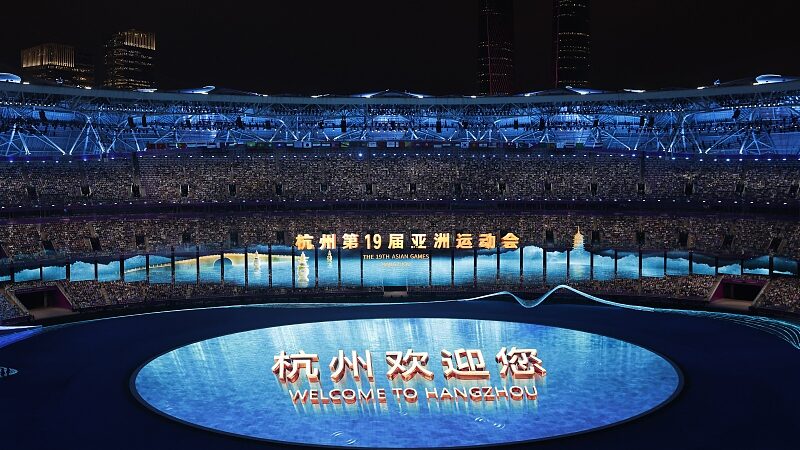The 19th Asian Games is underway in Hangzhou, the vibrant capital of Zhejiang Province in eastern China, running from September 23 to October 8. Chinese President Xi Jinping officially declared the games open during the grand opening ceremony on the evening of September 23.
This marks China's third time hosting the Asian Games, following previous editions in Beijing and Guangzhou over the past 33 years. Once again, the Games serve as a platform for peace and friendship, uniting people from diverse regions and ethnic backgrounds.
All 45 member nations of the Olympic Council of Asia are participating, with countries and regions such as South Korea, Mongolia, and Palestine sending their largest-ever delegations to the Asian Games. Over 12,000 athletes are competing, setting a new record for the number of participants in the history of the Games.
The Hangzhou Asian Games stand out not only for their scale but also for the variety of events. Featuring 40 major sports, 61 disciplines, and a total of 481 events, this edition includes 29 Olympic sports aligned with the upcoming Paris Olympics and 11 non-Olympic sports that highlight distinctive regional traditions across Asia. Additionally, the Games are introducing emerging sports like skateboarding, breakdancing, and e-sports for the first time.
While primarily hosted in Hangzhou, the Games are also taking place in five co-host cities: Ningbo, Wenzhou, Huzhou, Shaoxing, and Jinhua. With 56 competition venues, 31 independent training facilities, one Asian Games Village, and five sub-villages, the Hangzhou Asian Games boast the broadest regional coverage ever.
Hangzhou was awarded the 19th Asian Games on September 16, 2015. As the capital of Zhejiang Province, Hangzhou boasts a rich cultural heritage that spans millennia. The city has played a pivotal role throughout various epochs in Chinese history and continues to drive progress with a global outlook anchored in China's reform and opening-up policy.
Since 2003, Hangzhou has achieved remarkable economic growth, with its GDP reaching nearly 1.9 trillion yuan in 2022, placing it among China's leading cities. Despite this growth, Hangzhou has remained committed to preserving its cultural traditions and embracing universal values. The city has also earned high rankings in happiness indices, reflecting its strong social security, cultural heritage, and level of civilization.
Reference(s):
Hangzhou Asian Games to foster peace, solidarity and inclusiveness
cgtn.com




